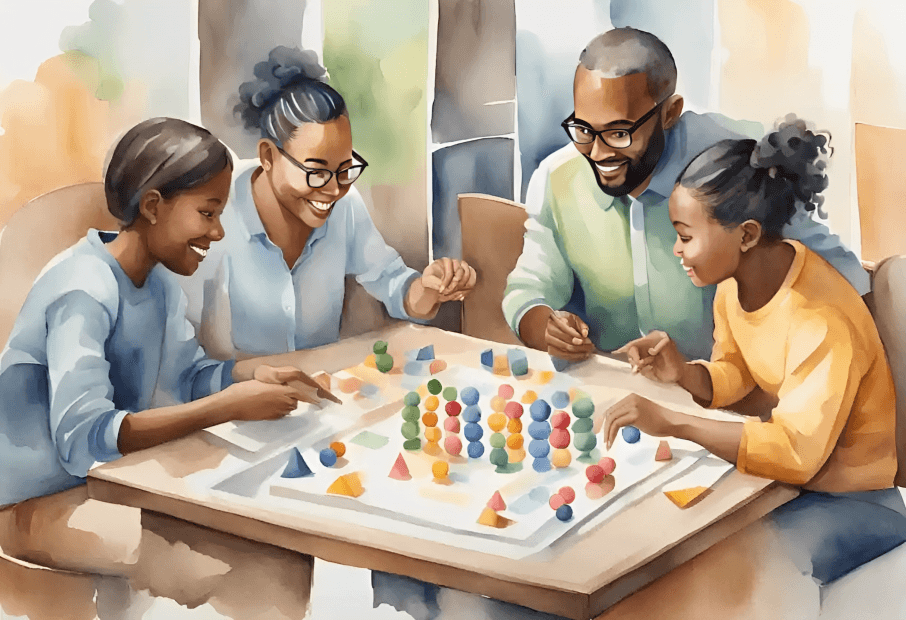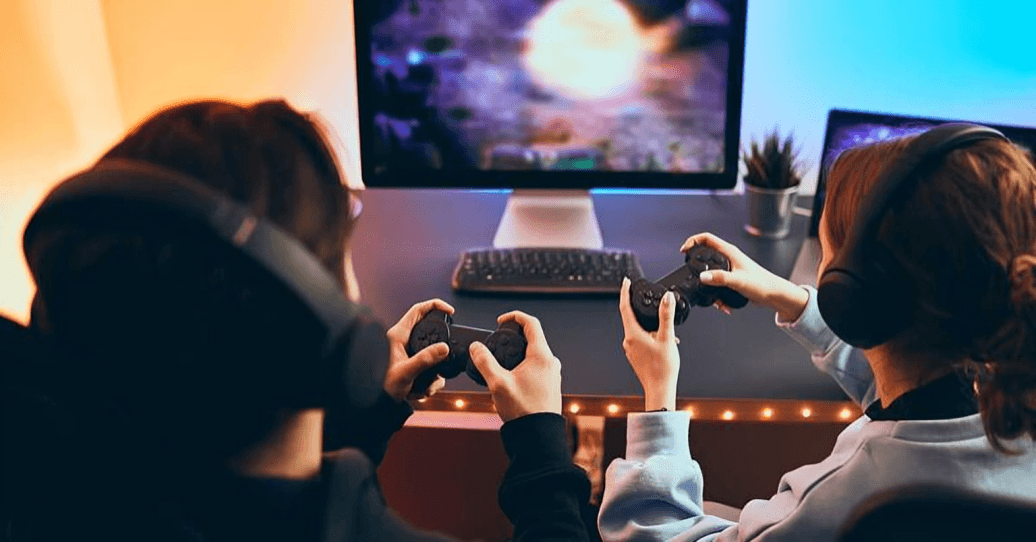
“
Understanding how video games affect mental health is crucial in today’s digital era. From enhancing cognitive skills and relieving stress to triggering addiction and social isolation, video games impact players in both positive and negative ways. 1
1
”
A philosopher said video games are modern myths, helping players explore identity, morality, and consequences, which can build self-awareness and emotional strength when played with reflection. 1
Multiplayer games support emotional bonding by encouraging cooperation, teamwork, and trust, which strengthens social relationships and can significantly reduce the feelings of loneliness often linked with depression. 2

Solving complex tasks in strategy games exercises executive functioning, improving memory and attention control — skills that contribute to healthier cognitive patterns in school, work, or everyday life decisions.
Gaming late at night disturbs circadian rhythms and melatonin production, reducing sleep quality and duration, which worsens emotional regulation, concentration, and overall mood, especially in teens and young adults. 3
Rapid gameplay in action titles improves reflexes, spatial awareness, and multitasking, enhancing neural processing speeds that may help individuals handle fast-paced or high-pressure tasks in real-world environments. 4
Using video games as a consistent escape from stress can become harmful, reinforcing avoidance behaviors instead of facing real-life challenges, which deepens anxiety or emotional detachment over time. 5
Video games often provide inclusive communities that accept diverse backgrounds, offering emotional support and belonging for individuals who feel misunderstood or marginalized in their offline social circles. 6
Too much gaming can result in decreased face-to-face interaction, weakening communication skills and social confidence, and increasing emotional dependence on virtual experiences rather than real-world connections. 7
Therapeutic games designed for mental health use techniques such as cognitive behavioral prompts or breathing exercises, helping users learn healthier thought patterns. 8

Long gaming sessions without physical movement may lead to fatigue, muscle strain, and mood swings — physical issues that gradually contribute to lower self-worth and mental sluggishness if ignored.
Team-based games encourage positive social behaviors such as planning, leadership, sharing responsibilities, and managing conflict, which build emotional maturity and support lifelong relationship-building skills. 9
Mental health-focused games help users identify triggers, track moods, and make healthier decisions, offering a valuable tool alongside therapy for managing emotional health with engaging, interactive storytelling. 10
Fast-paced games strengthen cognitive flexibility by forcing players to rapidly adjust strategies, promoting more adaptive thinking and creativity that may help individuals with rigid or anxious thinking patterns. 11
Repeated exposure to violent imagery in some video games may cause emotional desensitization in a small number of players, which may increase aggressive thoughts or lower empathy in social situations. 12
Role-playing games with strong narratives deepen emotional insight by prompting players to reflect on ethical choices, encouraging them to understand consequences from multiple viewpoints. 13

Simulation games provide a sense of control in chaotic lives, helping players experiment with decision-making, manage stress, and develop confidence through trial-and-error without fear of real-world consequences.
Gaming enhances visual-motor coordination, especially in children and young adults, leading to better hand-eye coordination and faster responses, which may benefit sports, driving, or technical work environments. 14
Becoming too immersed in gaming may lead to emotional withdrawal from family, work, or school obligations, creating an unhealthy imbalance that gradually reduces purpose and social fulfillment over time. 15
Story-based adventure games stimulate imagination, introspection, and curiosity, enabling players to explore philosophical questions and values in immersive worlds that mirror psychological growth. 16
A medical expert observed that video games, in moderation, offer cognitive engagement, emotional relief, and even mindfulness, but only when balanced with exercise, relationships, and meaningful offline activities. 17


